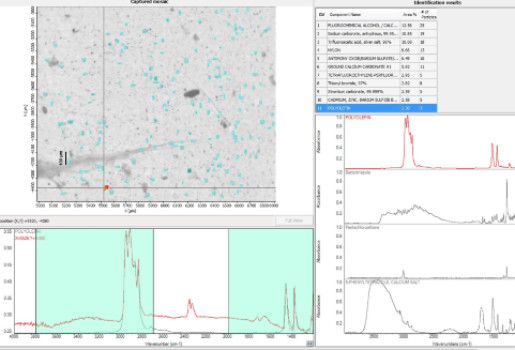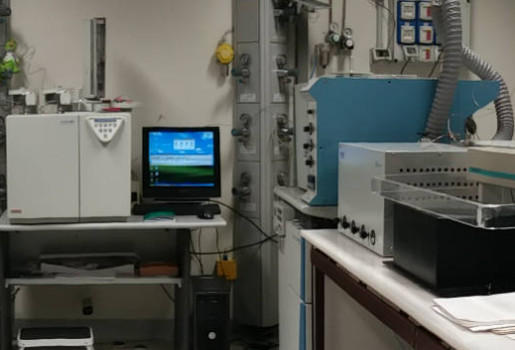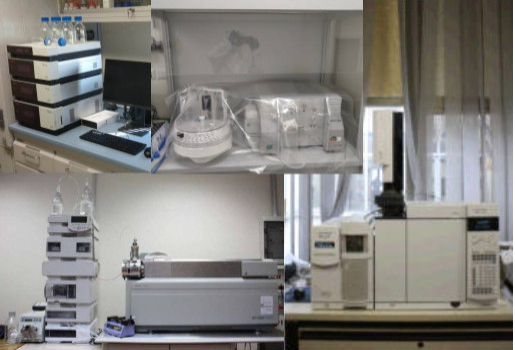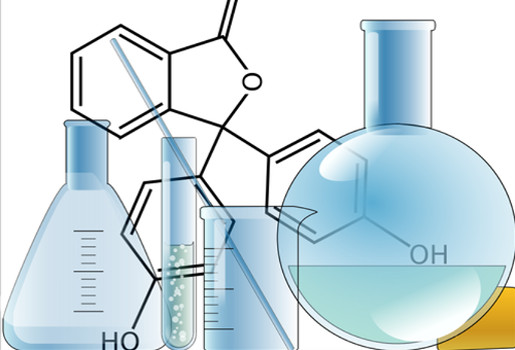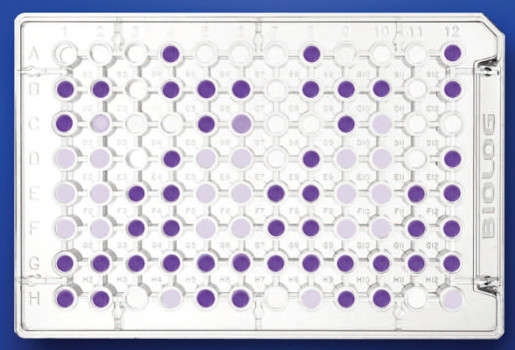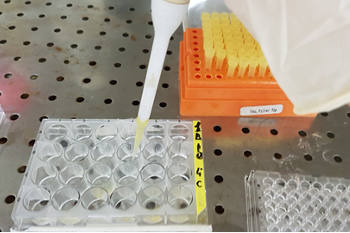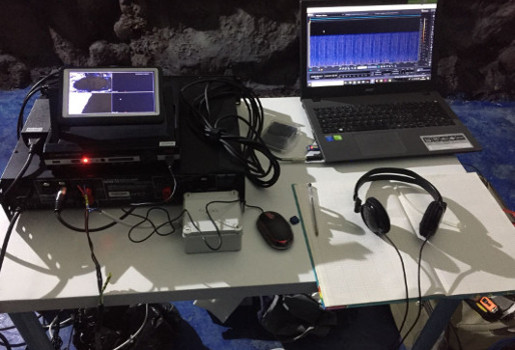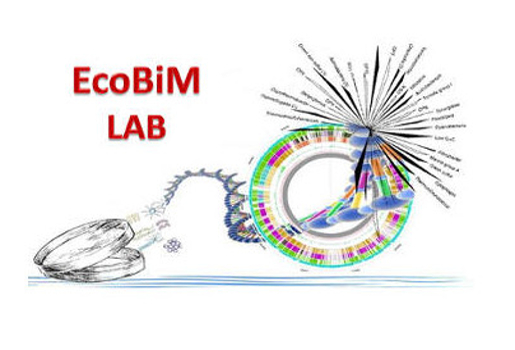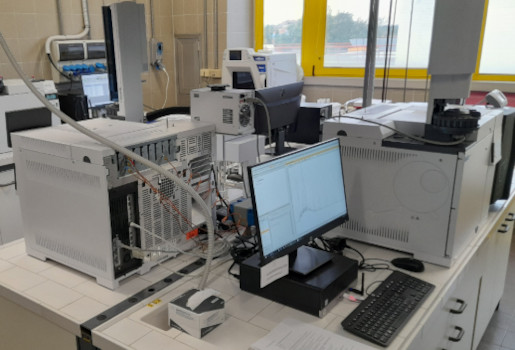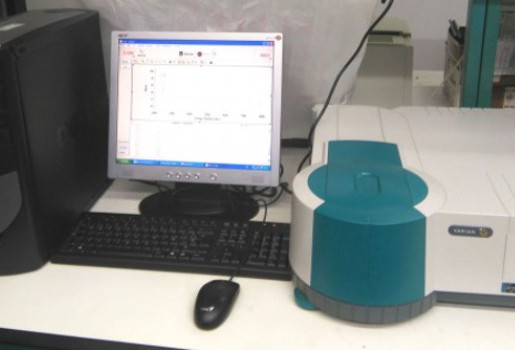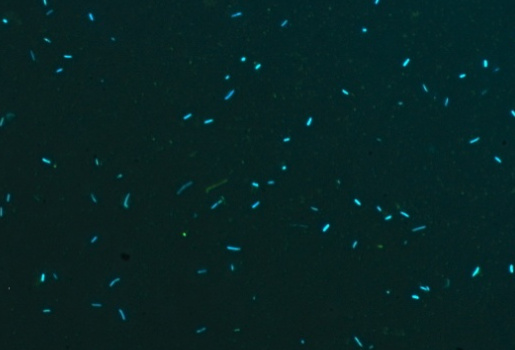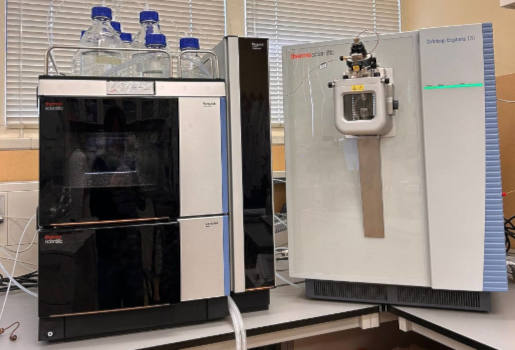
Children categories
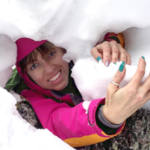 She took her degree in Physics at the University of Padua in 1999 and her PhD in Science for Conservation of Cultural Heritage at the University of Florence in 2007.
She took her degree in Physics at the University of Padua in 1999 and her PhD in Science for Conservation of Cultural Heritage at the University of Florence in 2007.
She joined the National Research Council of Italy in 2002 where she won a permanent position as a researcher in 2011. From 2002 to 2019 she worked at the Institute of Atmospheric Science and Climate (ISAC), Padua, then she moved to the Institute of Polar Sciences (ISP), Venice, where she is currently researcher.
Her research interests are in the fields of Atmospheric physics, Climatology and Microclimatology, Environmental Sciences.
At ISAC, she started working in microclimatology applied to the preventive conservation of cultural heritage assets, indoor environmental quality and energy saving, developing a large experience in multidisciplinary research projects. Then her research activity was more and more focused on climatology. Currently, her interest is on one side in climatic change research through the recovery, correction and analysis of proxy and instrumental series of climatic data; on the other in the study of atmospheric physical parameters and processes to investigate the energy balance and the polar climatic system. She was member of the coordination team of many FP5, FP7and H2020 European projects, and investigator in international and national projects. She was contract professor for masters and specialized course, tutor of PhD, BSc and MSc thesis.
Scopus - Author ID: 55370745600 ![]() http://orcid.org/0000-0002-8408-0102 WoS Researcher ID: AAD-8969-2020 Research Gate: Francesca Becherini
http://orcid.org/0000-0002-8408-0102 WoS Researcher ID: AAD-8969-2020 Research Gate: Francesca Becherini
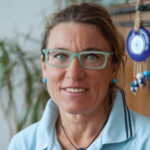 Graduated in Chemistry and Pharmaceutical Technologies in 1993, researcher at ISPRA since 2000. Head of the oceanography and Contamination of Aquatic Environments laboratory since 2009 at the ISPRA in Chioggia. My analytical expertise concerns the chemical characterization (elemental and isotopic) of dissolved, particulate and sedimentary organic substance in marine environments, transition waters and polar environments; analysis of contamination of water, sediments and organisms by organotin compounds; characterization of the stable isotopes of carbon and nitrogen in the trophic chain; analysis of dissolved nutrients in marine, transitional and polar waters. My activity focuses on the planning of the analytical activity required by the various institutional, national and European projects, in the evaluation of the quality of the data produced with the drafting of reports, field activities (boarding) and participation in institutional meetings and international conferences. In addition to my scientific activity, 70 international publications and 70 or more participations in conferences and posters, I am involved in terms of my chemical skills in national working groups and institutional roles, in particular as an expert and national representative in the established technical working groups at the European Commission and UNEP/MAP for the Barcelona Convention on the issue of contaminants since 2014. Since 2020 reference for Italy for WISE 6 -NRC for reporting activities.
Graduated in Chemistry and Pharmaceutical Technologies in 1993, researcher at ISPRA since 2000. Head of the oceanography and Contamination of Aquatic Environments laboratory since 2009 at the ISPRA in Chioggia. My analytical expertise concerns the chemical characterization (elemental and isotopic) of dissolved, particulate and sedimentary organic substance in marine environments, transition waters and polar environments; analysis of contamination of water, sediments and organisms by organotin compounds; characterization of the stable isotopes of carbon and nitrogen in the trophic chain; analysis of dissolved nutrients in marine, transitional and polar waters. My activity focuses on the planning of the analytical activity required by the various institutional, national and European projects, in the evaluation of the quality of the data produced with the drafting of reports, field activities (boarding) and participation in institutional meetings and international conferences. In addition to my scientific activity, 70 international publications and 70 or more participations in conferences and posters, I am involved in terms of my chemical skills in national working groups and institutional roles, in particular as an expert and national representative in the established technical working groups at the European Commission and UNEP/MAP for the Barcelona Convention on the issue of contaminants since 2014. Since 2020 reference for Italy for WISE 6 -NRC for reporting activities.
Since 2021, I have been participating in the Arctic Table at the Ministry of Foreign Affairs and International Cooperation (MAECI). National expert for the D4 and D8 descriptors in the Marine Strategy (MSFD) WGs and TSGs since 2017 in the European Expert Network on Contaminants group European Commission Joint Research Center (JRC).
Participation in several European projects MEDREGION (Support Mediterranean Member States towards the implementation of the Marine Strategy Framework Directive new GES Decision and programs of measures and contribute to regional/subregional cooperation), PNRA PROPOSE (Processes controlling the presence and distribution of pollutants in Ross Sea Area); HarmoNIA (Harmonization and Networking for contaminant assessment in the Ionian and Adriatic Seas), Interreg Program ADRION, European Marine Observation and Data EMODNET Chemistry Service Contract No. MARE/2012/10 – Lot 4 Chemistry; VECTOR LINE 6 The role of the Northern Adriatic continental shelf in Mediterranean carbon cycles (CARADRI); 2009 PNRA Trace metals in the Antarctic food web.
 PhD student in Polar Sciences at Ca' Foscari University of Venice, where he previously obtained a Master's Degree in Environmental Sciences. His research project aims to understand if in the recent period Svalbard has really changed their climatic regime defining the potential associated consequences.
PhD student in Polar Sciences at Ca' Foscari University of Venice, where he previously obtained a Master's Degree in Environmental Sciences. His research project aims to understand if in the recent period Svalbard has really changed their climatic regime defining the potential associated consequences.
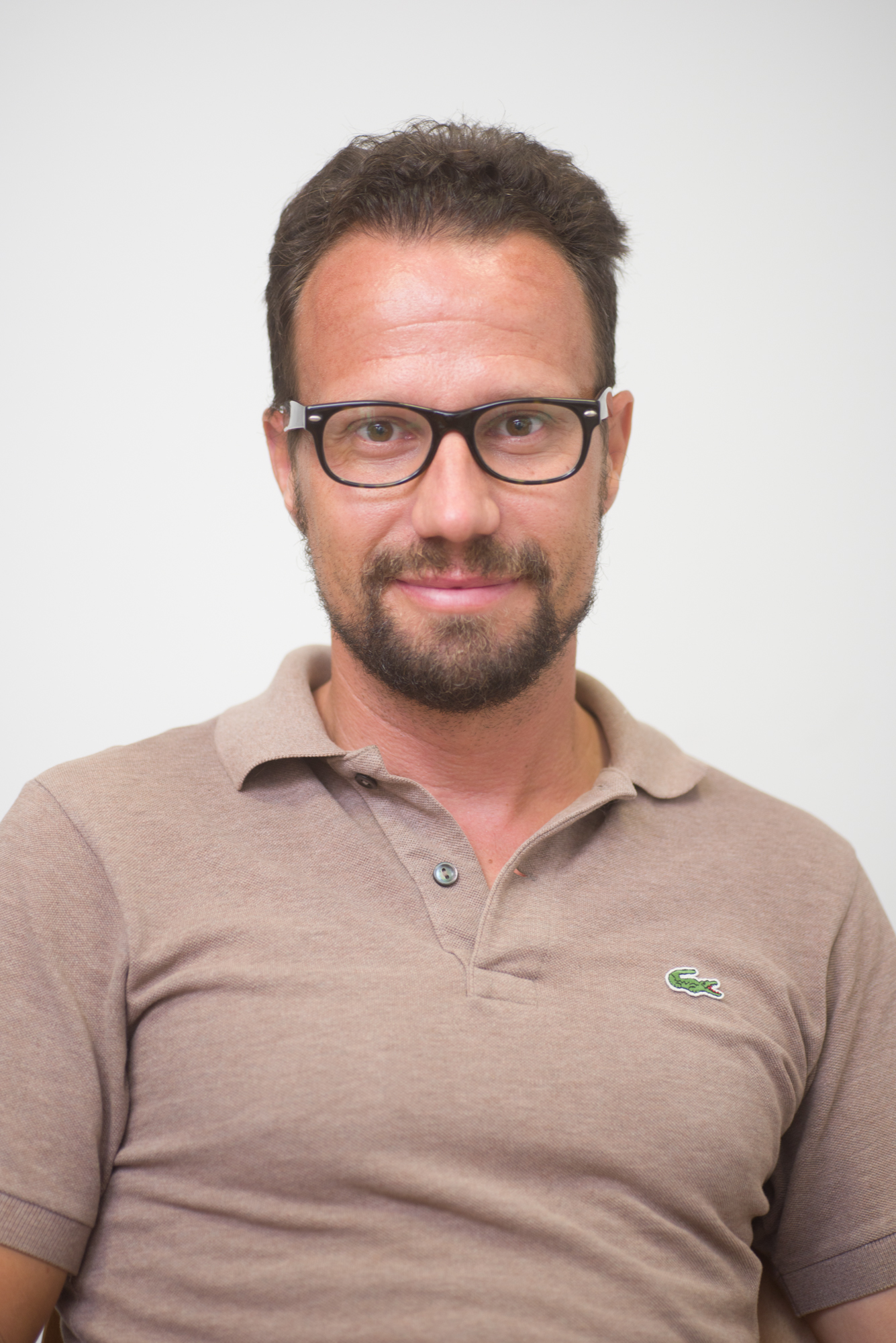 Associate Professor of Applied Geophysics at the Department of Geosciences, University of Padova. He has participated in numerous national and international projects in terrestrial and marine areas (IODP). He has been a visiting scientist at Boston University, USA, and twice at the ETH-SLF Institute, Switzerland. He was awarded the “G. Pialli” National Thesis Prize for Geophysics in 2004, the “Licio Cernobori” National Geophysics Prize in 2014 and the “Leonardo Da Vinci” Prize in 2020. His research interests include applied geophysics for the characterisation of the near surface, natural hazard scenarios and environmental geophysics with a focus on glacial and periglacial environments. He is author/co-author of more than 100 articles in international indexed journals.
Associate Professor of Applied Geophysics at the Department of Geosciences, University of Padova. He has participated in numerous national and international projects in terrestrial and marine areas (IODP). He has been a visiting scientist at Boston University, USA, and twice at the ETH-SLF Institute, Switzerland. He was awarded the “G. Pialli” National Thesis Prize for Geophysics in 2004, the “Licio Cernobori” National Geophysics Prize in 2014 and the “Leonardo Da Vinci” Prize in 2020. His research interests include applied geophysics for the characterisation of the near surface, natural hazard scenarios and environmental geophysics with a focus on glacial and periglacial environments. He is author/co-author of more than 100 articles in international indexed journals.
 Received his PhD in physics from Heidelberg University in 2011. He has worked in ice core and glaciological research at institutions in Germany, USA and Austria before receiving a Marie Skłodowska-Curie fellowship at the University of Venice (www.unive.it/gold-ice).
Received his PhD in physics from Heidelberg University in 2011. He has worked in ice core and glaciological research at institutions in Germany, USA and Austria before receiving a Marie Skłodowska-Curie fellowship at the University of Venice (www.unive.it/gold-ice).
He has participated in numerous field campaigns on remote glaciers in the European Alps, Kilimanjaro, Greenland and Antarctica. His recent focus lies on ice core research with laser ablation inductively-coupled plasma mass spectrometry (LA-ICP-MS).
 I'm an analytical chemist specialised in trace elemental analysis, and trace element speciation studies. My goals include determining the role, fate and toxic effects of heavy metals in the environment and their impact on humanity. Recently I have been concentrating on mercury, it's atmospheric concentrations and presence in snow, ice and ground water, with particular emphasis on deposition phenomena. I have participated in 2 Antarctic Expeditions to Concordia Station and am the Italian National Expert on the POPs and Mercury Expert Groups of AMAP, the Arctic Monitoring and Assessment Program as well as on the Arctic Contaminants Action Program (ACAP).
I'm an analytical chemist specialised in trace elemental analysis, and trace element speciation studies. My goals include determining the role, fate and toxic effects of heavy metals in the environment and their impact on humanity. Recently I have been concentrating on mercury, it's atmospheric concentrations and presence in snow, ice and ground water, with particular emphasis on deposition phenomena. I have participated in 2 Antarctic Expeditions to Concordia Station and am the Italian National Expert on the POPs and Mercury Expert Groups of AMAP, the Arctic Monitoring and Assessment Program as well as on the Arctic Contaminants Action Program (ACAP).
I have co-authored over 64 publications and I am a writer for the Atomic Spectrometry Updates Environmental Analysis review of the Royal Society of Chemistry. I obtained my degree in Environmental Chemistry from the University of East Anglia, followed by an M.Sc in Analytical Chemistry, I obtained my Ph.D from the University of Plymouth in 1996.
Scopus - Author ID: 7003572964 Research Gate: Warren Cairns
 Graduated in Chemistry in 1993, obtained a PhD in 1997, she has been a senior technologist at ISPRA since 2021 and a technologist since 2005. Specializing in the chemical contamination of freshwater and marine environments, sediments, and soil, over the years, she has carried out numerous activities, including chemical and ecotoxicological laboratory work aimed at developing analytical methodologies and environmental indicators. She has also been involved in fieldwork, including participation in four expeditions to Antarctica, two of which she coordinated the project personnel. Her activities also encompass training, processing and validating chemical data from environmental monitoring, and providing support to ministries and other entities.
Graduated in Chemistry in 1993, obtained a PhD in 1997, she has been a senior technologist at ISPRA since 2021 and a technologist since 2005. Specializing in the chemical contamination of freshwater and marine environments, sediments, and soil, over the years, she has carried out numerous activities, including chemical and ecotoxicological laboratory work aimed at developing analytical methodologies and environmental indicators. She has also been involved in fieldwork, including participation in four expeditions to Antarctica, two of which she coordinated the project personnel. Her activities also encompass training, processing and validating chemical data from environmental monitoring, and providing support to ministries and other entities.
Currently, she manages and participates in environmental research activities related to the management of chemical contamination and the diffusion processes of contaminants, in line with the institutional activities of the Institute. In recent years, she has provided technical-scientific support for activities related to the collection and organization of databases related to the monitoring of different types of water, to be transmitted at the European level (EIONET Soe). She is the national representative (NRC) for Marine, coastal, and maritime issues at the European Environment Agency.
In past years, she has provided technical-scientific support for reporting activities related to the Nitrates Directive, activities related to the management and reclamation of some Sites of National Interest, the IPPC/AIA Commission, and the VIA Commission. For about 20 years, she has been involved in polar environment research, starting during her academic years and continuing to the present. She currently coordinates a Collaboration Agreement with the British Antarctic Survey (BAS). She is involved in several national and international research projects and has produced more than 80 refereed and non-refereed scientific publications.
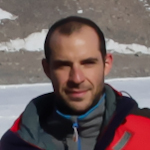 Master’s degree in Marine Biology at the University of Padova; PhD student at the University of Bologna (FishMed-PhD).
Master’s degree in Marine Biology at the University of Padova; PhD student at the University of Bologna (FishMed-PhD).
Since 2015 he has been working on national fishery monitoring programs, within the EU-Data Collection Framework, funded by scholarships of Ancona National Research Council (CNR). From 2015 he also has been participating in marine research activities of the Padova University, at the Hydrobiological Station of Chioggia. His fields of interest are inherent to the biological life cycles of commercial fish species of the Mediterranean and the Antarctic areas (notothenioids). In particular, he investigated reproductive traits of these species thought histological analyses of gonads, age structure/growth cycle by means of otoliths’ readings and some trophic features using the stomach content analyses.
He collaborated in more than 10 scientific trawl surveys in Italian water and joined the 38th Italian expedition to Antarctica (2022/2023).
Google Scholar Scopus - Author ID: 57192875066 Research Gate: Federico Calì
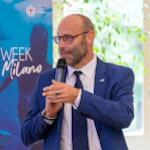 M. Sc. in Environmental Sciences, Ph.D. in Environmental Sciences (oceanography) from the University of Venice. Research Director at the CNR Institute of Polar Sciences, Venice, CNR Researcher since 1997. From 2019 to early 2025, he held the role of Head of the Research Division at NATO STO CMRE in La Spezia.
M. Sc. in Environmental Sciences, Ph.D. in Environmental Sciences (oceanography) from the University of Venice. Research Director at the CNR Institute of Polar Sciences, Venice, CNR Researcher since 1997. From 2019 to early 2025, he held the role of Head of the Research Division at NATO STO CMRE in La Spezia.
He taught classes at the University of Bologna, Ancona, and Bocconi University in Milan, and owns the National Scientific Qualification as Full Professor in the 04/A4 Geophysics sector. Awarded the Office of Naval Research Command Coin, he served as Deputy President of the Ocean Science Division at the EGU (European Geoscience Union) from 2019 to 2024. In 2022, he received the Tridente d’Oro award for scientific and outreach merits and, starting in 2024, was admitted as an International Fellow of The Explorers Club.
He investigates the relationship between oceans and climate with a multi- and interdisciplinary approach. His main area of interest is physical oceanography and the interactions occurring between atmosphere, water and sediments. His research has focused on understanding and numerically modeling the role of currents, winds and waves in the transport of heat and salt in the oceans, and the associated variability in the context of an evolving climate.
The extraordinary role in the redistribution of energy between oceanic and atmospheric masses, and the determination of the related energy transfer along the water column, has been central to his research activities, intertwined with connections to: biogeochemical and sedimentological aspects (transport of nutrients and associated sediments); marine renewable energies; unexploded ordnance in the sea; and risks related to flooding and coastal erosion. He has promoted and developed a series of 3D circulation models coupled with meteorological models, third-generation wave generation and propagation models, and modules for the transport of non-cohesive sediments and biogeochemical modules.
The modeling approach has been validated with data from satellites, remote observations, and in-situ measurements in particularly vulnerable areas in the context of global warming. Along with the use of CTD probes, wave gauges, current meters, and turbidimeters, innovative techniques such as Maritime Unmanned Systems (MUS), seismic oceanography, and turbulence measurements with free-fall profilers have been employed. Author and co-author of over 120 papers in ISI journals with Impact Factor, 2 CNR patents, and 5 popular science books, he is a member of the Editorial Board of Scientific Reports (Nature group), Progress in Oceanography, and Ocean Dynamics.
ResearchGate Google Scholar
 Graduated in Biological Sciences, Specialist in Applied Microbiology, she has been a CNR researcher since 1994.
Graduated in Biological Sciences, Specialist in Applied Microbiology, she has been a CNR researcher since 1994.
Her scientific interests focus on marine microbial ecology and the role of microorganisms in the decomposition processes of organic matter in Mediterranean and polar environments through enzymatic activity measures (aminopeptidase, glucosidase, phosphatase); the search for pathogenic bacteria (Escherichia coli, Vibrio spp.) by means of fluorescent antibody method and enzymatic assays; changes in physiological parameters (digestive enzymes, non-specific immunity) of marine Teleosts in response to stressors. Recent studies in extreme environments have explored the abundance and activity of the free-living heterotrophic bacterial community (UVASS, Svalbard, Arctic Project), present in permafrost or brines (National Antarctic Research Program projects-PNRA 2013/AZ1.05), of microbial biofilms over plastic substrates (PNRA16_00105), acting also as vectors of antibiotic resistance (PNRA 14_00090).
Member of the PhD School for Applied Hygiene - Univ. Messina (2006-2011) and of the Plankton (2000-2001; 2002-2003; 2010-2012; 2013-2015) and Aquaculture Committees (2004-2006; 2016-2018; 2019-2021) of the Italian Society of Marine Biology. Qualified as Full Professor of Ecology (2012-2020). P.I. and member of several research projects (PNRA, EU FP 7 PERSEUS, Marine Strategy, VECTOR, MIUR Cluster-Advanced Monitoring Systems), she has collaborated with the Institute of Hydrobiology-Wuhan (China), Univ. du Sud Toulon-France, CENPAT- Puerto Madryn (Argentina), CERTE-Soliman (Tunisia).
Co-author of over 350 scientific papers, she has a H index 19 (Scopus). Refeee (Publons) and member of Editorial Boards of OA international journals (J. Mar. Sci. Engin.-JMSE, MDPI; J. Coastal Life Medicine, Hainan Univ.; J. Clinical Microbiol. Biochem. Technol.- PEERTECHZ; The Open Fish Sci. J., The Open Mar. Biol. J., BENTHAM; J. Oceanogr. Mar. Res., LONGDOM; J. Ecosyst. Ecogr. OMICS).
Scopus - Author ID: 7102219836 ![]() http://orcid.org/0000-0002-3819-5486 Scholar
http://orcid.org/0000-0002-3819-5486 Scholar
More...
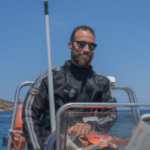 In 2017, he earned a PhD in Environmental and Evolutionary Biology, specializing in Ecological Sciences. Currently, he is a Researcher at the Department of Environmental Biology of Sapienza University of Rome. His primary research interests encompass the ecology of benthic communities, the impacts of human activities and climate change on marine ecosystems, as well as ecological restoration. Specifically, his work focuses on:
In 2017, he earned a PhD in Environmental and Evolutionary Biology, specializing in Ecological Sciences. Currently, he is a Researcher at the Department of Environmental Biology of Sapienza University of Rome. His primary research interests encompass the ecology of benthic communities, the impacts of human activities and climate change on marine ecosystems, as well as ecological restoration. Specifically, his work focuses on:
• assessing the distribution, composition, structure, and health status of Mediterranean benthic communities of conservation interest;
• studying and defining the processes of bioconstruction and bioerosion on natural and anthropic substrates, especially concerning submerged archaeological finds;
• evaluating the effects of human disturbance, heat waves, and ocean acidification on benthic communities, with particular attention to the quantification of resistance and recovery processes;
• defining methods for the active and passive restoration of marine ecosystems and new tools useful for evaluating their effects in terms of recovery and state of health.
Since 2015, he has worked as a Scientific Diver and, since 2018, he has also been teaching at the Scientific Diving Summer School in collaboration with researchers from OGS and the University of Genoa.
He has authored or co-authored over 30 indexed papers (SCOPUS) published in international journals.
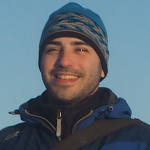 CTER VI level from November 2014.
CTER VI level from November 2014.
From 2014 to 2018 I worked as a technician at the CNR ISMAR Venice participating in numerous oceanographic campaigns and dealing with reagents, waste disposal, material orders and safety in laboratories. Since 2019 I have been a member of the Institute of Polar Sciences of the CNR, carrying out the following tasks:
- Laboratory technician and use of laboratory instruments;
- Collection, preparation and analysis of samples;
- Maintenance and repair of instruments;
- Preparation and transport of equipment for Arctic missions or mountain trips;
- Logistics Management Laboratories and Reagentaries;
- Instructor for orders on the electronic market;
- Appointment by Computer Protocol;
- Control and Technical Management White Rooms (Clean Rooms).
 She obtained a Bachelor's and Master's degree in Computer Engineering at the University of Florence and a Ph.D. in Information Engineering (nonlinear dynamics and complex systems) at the same University. She later worked as a post-doc fellow at the CNR Bioeconomy Institute. She currently holds the role of technologist at the Institute of Polar Sciences of the CNR, based in Bologna, collaborating on the data management and administration of the IT infrastructures of the NADC (National Antarctic Data Center) and IADC (Italian Arctic Data Center) projects. Thanks to experience in the field of data management and their analysis also through machine learning techniques, it helps researchers publish and share the data collected from research, making them compatible with modern standards and adhering to the principles of data FAIRness and Open Science.
She obtained a Bachelor's and Master's degree in Computer Engineering at the University of Florence and a Ph.D. in Information Engineering (nonlinear dynamics and complex systems) at the same University. She later worked as a post-doc fellow at the CNR Bioeconomy Institute. She currently holds the role of technologist at the Institute of Polar Sciences of the CNR, based in Bologna, collaborating on the data management and administration of the IT infrastructures of the NADC (National Antarctic Data Center) and IADC (Italian Arctic Data Center) projects. Thanks to experience in the field of data management and their analysis also through machine learning techniques, it helps researchers publish and share the data collected from research, making them compatible with modern standards and adhering to the principles of data FAIRness and Open Science.
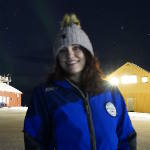 Polar Science PhD candidate at the Ca’Foscari University of Venice since 2021, she holds a master’s degree with honours in Chemistry from the University of Venice. The overwintering working experience in Antarctica in 2019 allowed the deepening into polar and snow chemistry and field expertise.
Polar Science PhD candidate at the Ca’Foscari University of Venice since 2021, she holds a master’s degree with honours in Chemistry from the University of Venice. The overwintering working experience in Antarctica in 2019 allowed the deepening into polar and snow chemistry and field expertise.
For her PhD thesis she works on the photochemistry of halogens and mercury in superficial snow and Antarctic ice cores.
 Ministero dell'Universita e Ricerca
Ministero dell'Universita e Ricerca
Programma Ricerche Artico
Programma Nazionale di Ricerca in Antartide
 Ministero degli Affari Esteri e della Cooperazione Internazionale
Ministero degli Affari Esteri e della Cooperazione Internazionale
L'Italia e l’Artico
L’Italia e l’Antartide
CNR-ISP
National Research Council
Institute of Polar Sciences
c/o Scientific Campus - Ca' Foscari University Venice - Via Torino, 155 - 30172 VENEZIA MESTRE (VE)
Phone: +39 041 2348547 - E-mail: protocollo.isp AT pec.cnr.it
Fax: +39 041 2348 549 - Codice Fiscale: 80054330586 - P.I.:02118311006
Unless otherwise indicated, the content of this site is licensed : Attribution Non Commercial Share Alike 4.0 International (CC BY-NC-SA 4.0)
Privacy policy e Cookie policy - Transparent administration (CNR)







